

All our walkers feature at least legs, on which they receive information of whether it has contact with the ground or not. They have the particularity of not being allowed to spend more than 600 consecutive steps underwater otherwise they are considered as "dead" and the actions sent to their motors no longer have any effect.
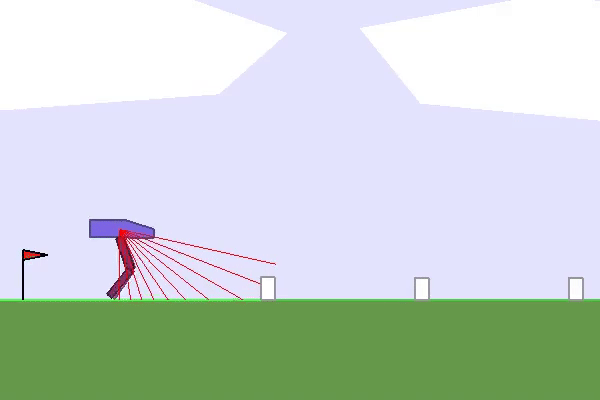
We reused the classic bipedal walker agent. *
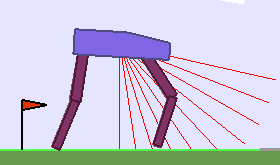
Quadrupedal walker introduced in this repository. The image above is taken from it.
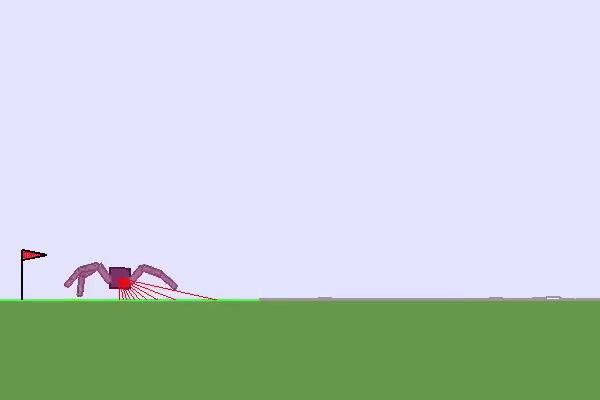
We introduce the spider, on which the number of pairs of legs (default 2) can be modified. *
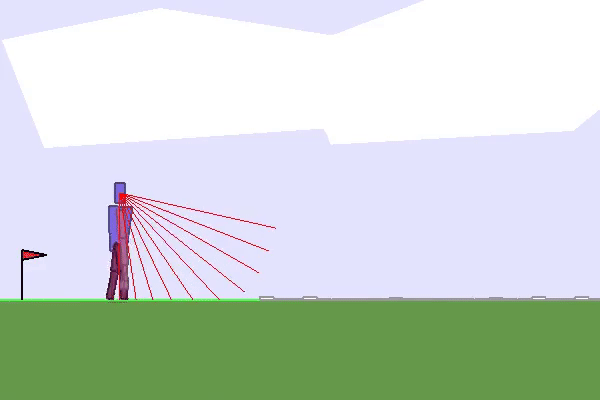
Its hand is composed of three parts (with motors in between). *
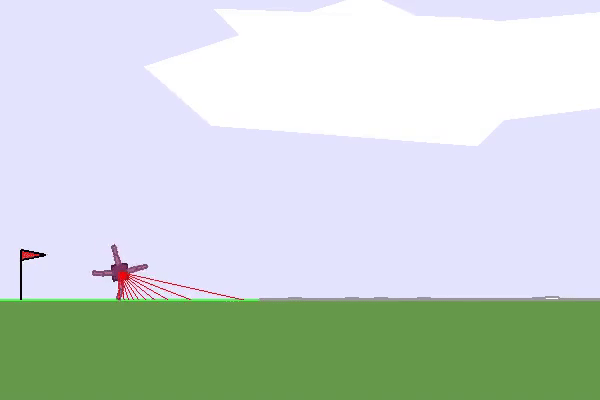
The wheel is made of a hull and legs around. The number of legs per side is controllable (default 1). *

Composed multiple body parts linked by a joint (which is not a motor). Each part has two legs and the number of parts is controllable. *
Climbers are made to grasp creepers or the ceiling in order to move forward. For this, they use sensors (red circles below) placed at the end of their arms. When a contact with a graspable surface is detected, climbers can grasp (creating a rotational joint in yellow below) using an action between [-1;1]. Whenever this action is greater than 0, the grasping behavior is activated, otherwise, the agent releases its "hand" (destroying the joint). Climbers are not allowed to touch the ground with any of their body part, and die after 600 consecutive steps underwater the same way walkers do.
Note that, as opposed to walkers which appear in the episode on the ground, climbers appear with all of their sensors attached to the ceiling, simplifying the access of graspable surfaces in the beginning of the episode.
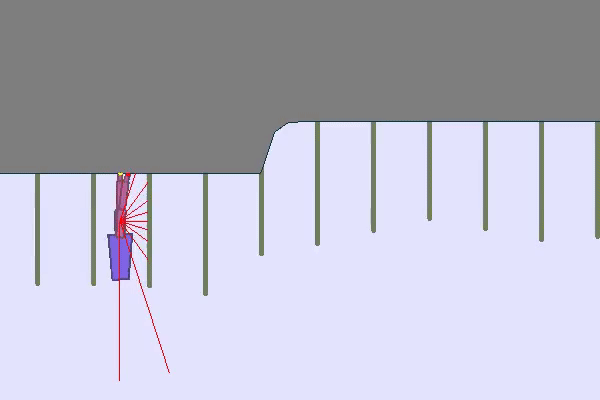
We introduce a cimbing (legless) chimpanzee. Its hands are replaced by sensors used to grasp creepers or the ceiling. *
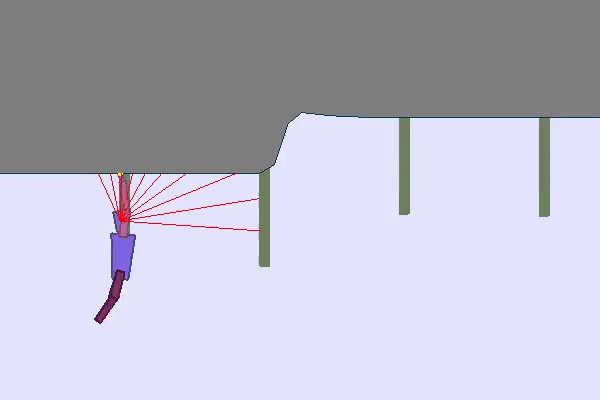
We then add legs to our chimpanzee (which complicates the action space). *
Swimming morphologies act underwater in a zero-gravity setup (i.e. their density is the same as the water's, meaning that they neither sink nor float as opposed to climbers and walkers which both sink). They are not allowed to spend more than 600 consecutive steps out of water otherwise they die the same way our other embodiments do.

Featuring a body composed of multi parts linked by a motor. It also has a fin movable through a motor positioned at its right extremity. *
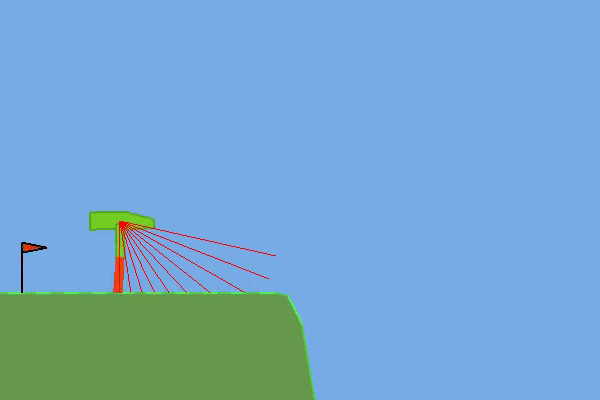
An extended version of the classic bipedal walker that is allowed to go both out and underwater. *
* Policies shown above were learned using Soft Actor Critic for 10 millions steps.